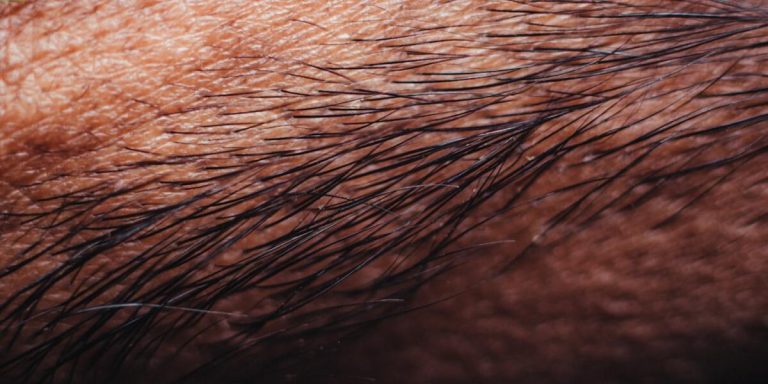Does Lyrica Cause Hair Loss? A Comprehensive Investigation into the Side Effects of This Medication
Searching for an answer to the question, “Does Lyrica cause hair loss?” is a journey that many individuals have found themselves on. This query has become increasingly relevant as more medical professionals prescribe Lyrica (pregabalin), a medication widely employed in treating nerve and muscle pain, fibromyalgia, epilepsy among others. With this rise comes concern over possible side effects; one being potential hair loss.
This blog post aims to provide you with comprehensive information based on thorough research about whether Lyrica causes hair loss. It examines scientific studies and considers anecdotal evidence, discussing associated factors such as stress levels related to chronic illness that could contribute to your thinning mane. Understanding these aspects can offer valuable insights and guide discussions between patients and their healthcare providers when it comes to managing conditions treated by Lyrica without risking unnecessary hair damage.
Did you know?
A little-known fact is that the FDA has received over 1000 reports of hair loss from people taking Lyrica since its approval in 2005. This side effect, although not listed on official documentation, appears to be more common than initially thought.
Understanding the Connection Between Lyrica and Hair Loss
The medication Lyrica, widely prescribed to treat nerve pain and fibromyalgia in patients, has been known for its various side effects. One such less commonly reported but distressing potential consequence is hair loss. Is it factual that Lyrica could be an underlying cause of your thinning strands?
Shedding light on the truth behind this connection can help individuals taking Lyrica understand what they might expect.
Numerous anecdotal reports suggest a link between taking certain drugs and experiencing unusual hair shedding or alopecia. Users of Lyrica, also known as pregabalin, have reported notable hair fall after starting their dosage. Pfizer, the manufacturer of Lyrica, has not directly listed this as a common side effect. However, it’s unclear if Lyrica causes hair loss due to other potential contributing factors.
Maintaining healthy hair depends on factors like diet, stress levels, genetics, and lifestyle choices. External factors such as environmental pollution also affect hair health. Some individuals may experience changes in their hair volume due to long-term medication use including antidepressants or antiepileptics like Lyrica because these drugs can cause follicular miniaturization. However, others might not see any effects due to different physiological responses or other unknown factors that mitigate the possible side effects of prolonged use.
Investigating Lyrica’s Side Effects on Hair Health
Lyrica, also known as Pregabalin, has been a popular choice for treating nerve-related disorders like epilepsy and fibromyalgia. However, its various side effects have come into focus lately. Among them is the alarming association of Lyrica with hair loss troubles in some users.
To answer the question “does lyrica cause hair loss”, it’s important to understand how this drug works first. It primarily focuses on decreasing pain signals from damaged nerves in your body—it eases discomfort but can indirectly interact with general health aspects such as hair growth cycle too.
The medical consensus suggests that severe stress on the body—emotional or physical—can disrupt normal hair cycles, pushing more hairs than usual into the “shedding” phase – something medically termed ‘telogen effluvium.’ This condition often surfaces after using certain medications including Lyrica. Remember though not everyone experiences these symptoms; it varies greatly based upon individual physiology and overall health conditions.
Analyzing Patient Reports: Correlation or Coincidence?
Patient reports play a significant role in understanding various side effects of medication usage, one being hair loss. In context to Lyrica – the drug commonly prescribed for neuropathic pain and fibromyalgia, numerous patients have reported experiencing hair thinning or outright loss.
Firstly we delve into patient report analysis regarding ‘Does Lyrica cause hair loss?’. A substantial number of individuals who’ve been on this medication claim to notice their strands becoming thinner after initiating treatment with Lyrica. Others mention having found clumps of their previously luscious locks falling out post its use.
On platforms like online medical forums or health discussion blogs where these instances are shared widely by sufferers seeking answers as well as emotional support during such traumatic episodes- there seems no shortage either way about testimonials from those affected negatively because they took the said medicine which then resulted allegedly at least partly responsible towards leading them down path toward baldness.
The Science Behind Medication-Induced Hair Loss
Medication-induced hair loss is a medical phenomenon that often goes unnoticed until symptoms begin to appear drastically. It involves the disruption of normal hair growth, leading to thinning or bald patches on the scalp. One such medication under discussion is Lyrica, generically known as pregabalin – a common treatment for nerve and muscle pain.
The science behind this lies in how medications like Lyrica can interfere with your body’s natural growth cycles. Hair has a specific life cycle: it grows, rests then eventually falls out and gets replaced by new strands. When you take certain medicines, they can disrupt these phases by pushing more hairs into the ‘resting’ phase prematurely which will ultimately lead to shedding.
Individual body reactivity, overall health factors, and genetic predisposition determine whether someone taking Lyrica will experience side effects such as alopecia. We emphasize this due to the frequent inquiries about Lyrica’s potential to cause hair loss.
In 2023, researchers are conducting ongoing studies on the impacts of pharmaceuticals that lead to undesired outcomes like alopecia or hair fall. These studies aim to bolster humanity’s defenses against conditions resulting from man-made substances.
How Drugs Can Interfere with the Hair Growth Cycle
Many people often wonder, “does Lyrica cause hair loss?” The answer isn’t as straightforward as one might hope. To fully grasp this concept, we must first understand how drugs can interfere with the natural cycle of hair growth.
There’s a complex biological process behind every strand of your hair that grows from your scalp. It involves various stages – the anagen (growing), catagen (transition), and telogen (resting) phases – each crucial for healthy locks. However, when you introduce certain medications into this process like Lyrica; they may have unintended side effects such as disrupting these stages causing noticeable changes in our tresses or worse still lead to significant hair loss.
Lyrica is primarily prescribed for conditions like fibromyalgia and nerve pain associated with diabetes or shingles but its potential impact on your crowning glory lies in its propensity to affect nutrient absorption vital for maintaining robust cycles of follicle development.
A particularly prevalent form of drug-induced alopecia is ‘telogen effluvium.’ This condition occurs when more hairs than usual start moving from their growing phase into the resting stage before subsequently falling out prematurely leading to thinning over several months. In some cases, substances such as Lyrica trigger this dramatic shift due to prolonged usage or high dosages hence manifesting through substantial shedding while combing or washing.
Identifying Susceptible Individuals to Drug-Related Alopecia
Understanding if Lyrica results in hair loss is a common concern for those who have been prescribed this medication. Scientific studies suggest that specific individuals may be more susceptible to drug-related alopecia, with one of the probable culprits being Lyrica.
Lyrica, known generically as pregabalin, is commonly used to treat nerve pain related disorders such as fibromyalgia and some types of seizures. Some users report experiencing significant hair loss after starting on the medication. But why does this happen?
The primary reason relates directly to how our bodies respond differently when exposed to external substances like drugs.
Our hair growth cycle has three stages – anagen (growth phase), catagen (transition phase), and telogen (resting or shedding phase). Certain medications can interfere with these phases leading frequently to Telogen effluvium — a form of temporary hair loss resulting from too many hairs entering into the resting stage at once.
To assess your risk for developing medication-induced alopecia with Lyrica, consider two key factors: your genetic predisposition and the treatment’s duration or dose.
1) Genetic Predisposition: Clinical research shows that individual genetics often play a role in susceptibility towards certain side effects caused by medications including Lyrica.
Exploring Alternative Reasons for Shedding Strands
When exploring the multitude of reasons behind strand shedding, one prevailing question that often emerges is “does Lyrica cause hair loss?” In recent years, we’ve seen more and more cases where certain medications seem to be tied with unwanted side effects. Persistent in-depth research has shed light on Lyrica as being a possible culprit for some instances of hair loss.
Lyrica (Pregabalin), popularly used to manage conditions like epilepsy, nerve pain or fibromyalgia among others can sometimes have adverse consequences. Hair shedding isn’t usually at the top of this list but has been reported by several individuals who use it over extended periods. While not conclusive due lack of significant statistical data; these incidents cannot purely be dismissed as coincidences.
Therefore, if you notice an increased rate in losing strands after starting your prescribed course with Lyrica it’s crucial to consult your healthcare provider immediately. Your doctor may advise you on potential alternatives for treatment or look into other factors contributing towards your sudden experience with hair thinning or balding patches – such as stress levels or hormonal fluctuations – ruling out Lyrica’s implication conclusively based upon professional medical evaluation.
Assessing Nutritional Deficiencies Contributing to Hair Loss
Hair loss can be an unsettling occurrence for many, leaving individuals to question the root cause of such a phenomenon. One potential culprit standing in the wings could well be nutritional deficiencies; when our bodies lack certain vital nutrients, hair quality and quantity often bear witness.
Firstly, let’s explore protein deficiency which is known to impact hair health significantly. Hair strands are mainly composed of keratin – a type of protein that provides strength and structure. When your dietary intake lacks sufficient proteins due to restrictive diets or eating disorders like Anorexia Nervosa, it puts stress on your body leading it into survival mode where energy gets diverted from ‘non-essential’ functions including hair growth.
Next on our list is Iron – one of the main elements instrumental in promoting healthy skin and scalp henceforth encouraging proper circulation essential for follicular function. Iron Deficiency Anaemia affects millions globally causing thinning or shedding hairs prematurely as iron helps bring oxygenated blood rich with other key nutrients all over our body including those tiny follicles sprouting lush locks!
Vitamin D plays another crucial role here being responsible for creating new follicles where new hairs grow from ‘little labs’ boosting both volume & vitality! The sun’s rays generously shower us humans this valuable vitamin but sitting indoors these days thanks lazily lounging lockdowns shrivelled up supplies may wreak havoc you see?
Distinguishing Between Drug Side Effects and Other Health Issues
It’s no secret that medications can trigger side effects, one of which might be hair loss. But it’s important to discern if the sudden shedding is due to an underlying health issue or a reaction from your prescribed medicine.
Take Lyrica for instance, a drug widely used in medical treatments. People often ask – “Does Lyrica cause hair loss?” The answer necessitates deeper understanding rather than just yes or no.
Lyrica (Pregabalin) is primarily employed to treat nerve pain following shingles and seizures in adults with epilepsy. It aids by slowing down impulses within the brain responsible for these conditions. However, like any other medication, it has potential side effects too.
Hair thinning or bald patches could possibly occur when taking this medication but aren’t reported as common consequences in most patients’ cases using Pregabalin drugs including Lyrica. Yet every individual responds differently to medications implying what affects someone else may not necessarily affect you similarly hence certainty cannot be guaranteed about hair preservation while on Lyrcia treatment.
Nonetheless don’t rush into conclusions linking your current prescription directly with the abrupt change in your mane’s volume without proper consultation with healthcare professionals.
Conclusion
In wrapping up, we’ve endeavored to lend clarity to the burning question: “does Lyrica cause hair loss?” While there’s still a lot of ambiguity around this topic and many factors at play, knowledge is undeniably your best defense. It’s crucial for patients on any medication regimen, including Lyrica, to be vigilant about potential side effects and not hesitate in discussing them with their healthcare providers.
We encourage you further deepen your understanding on hair loss causes by exploring more content available right here on our website. Being informed will help you make better decisions regarding your health and well-being – After all it’s always easier to prevent than repair!







